The Fragility of Cardiovascular Fitness
What 21 Days Without Movement Does to Your Heart
A handful of studies from the last century still blow my mind. Regardless of how many times I revisit them.
This is one of them.
If this one doesn’t convince you of aerobic training’s role in cardiovascular health & longevity, nothing will.
The Dallas Bed Rest Study
In 1966, researchers from UT Southwestern Medical Center and NASA1 confined 5 male college students to 3 weeks in bed with no movement allowed. The intention was to simulate the cardiovascular effects of prolonged space flight.
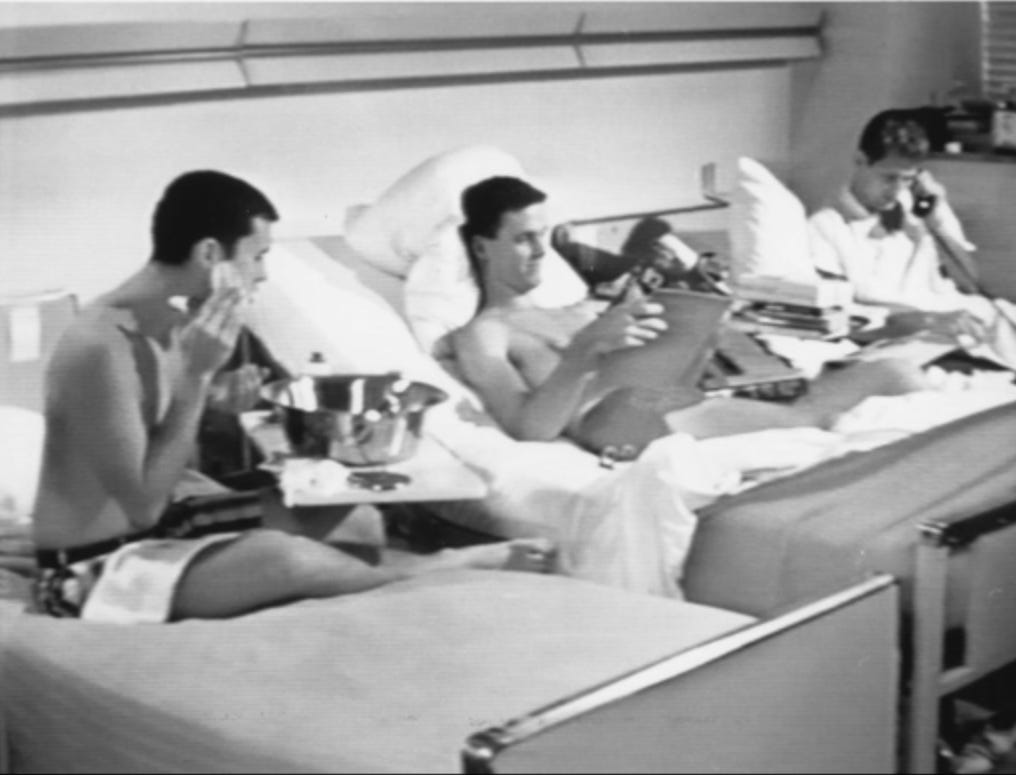
After the 3-week period:
VO2 max plummeted by 27% → from 3.3 L/min to 2.4 L/min
Stroke volume (amt of blood pumped per beat) dropped 28% → from 104 to 75 mL
Overall cardiac output fell 26% → from 20 L/min to 14.8 L/min
These short-term findings were expected.
What happened 30 years later much less so.
The 30-Year Follow Up
30 years after the initial experiment in Dallas, these same 5 men (now in their early 50s) returned for a check-in.
Their VO2max only dropped by 11% to 2.9 L/min → a difference far less devastating than the 27% drop record 30 years prior.
Even after VO2max was indexed to bodyweight & fat-free body mass, the results remain clear: 3 weeks of bedrest was worse for cardiovascular health than 30 years of aging.
Has It Ever Been Replicated?
The Dallas study had clear limitations:
Small sample size (n = 5)
No control group
Limited generalizability
Uncontrolled variables over the 30-year period
We can pick it apart even further from here, but it’s not grounds to invalidate entirely. Multiple studies have since confirmed the effects:
DeBusk et al. (1983)2: 10 days of bed rest decreased VO2 max by 15% in 12 healthy 50-year-old men.
Smorawinski et al. (2021)3: After just 3 days of bed rest, VO2 max declined across all fitness levels:
Untrained: -9.7% (2.61 to 2.36 L/min)
Endurance athletes: -16.4% (4.03 to 3.37 L/min)
Strength athletes: -10.5% (2.93 to 2.62 L/min)
Ried-Larsen et al. (2017)4: A systematic review of 80 studies and 949 subjects representing the strongest evidence on the topic found bed rest causes VO2 max to decline at ~0.4% per day.
Takeaways
Around 2017-2018, there was this odd trend in the online health space suggesting cardio was unnecessary component in obtaining an elite health status. Some went as far as claiming it was detrimental towards optimal physique goals. The argument was along these lines: “if you’re shortening rest times & HR is elevated, you’re executing aerobic exercise” & “cardio is torching your gains”.
You don’t see many of these same slop healthfluencer types/perspectives around anymore. And the space is entirely better off because of it.
I joked earlier this week on X: “It’s a divine signal to do your cardio. And often. Or else…”
Many in this space have experienced a similar phenomenon.
Take some time off from resistance training? Strength & muscle hold steady (most else being equal).
Cardiovascular fitness hiatus? Tanks after even 7-10 days of minimal work output.
It does make me wonder if there’s an evolutionary driving force at play here. A compelling biological demand to attain & keep an elite gas tank. Movement capacity — the ability to cover distance (with weight) & sustain effort, to escape threats —was non-negotiable for survival. Perhaps a criticality in the idea of “Just keep moving”.
If for nothing else here - don’t fall for the anti-cardio slop. Whether you’re a bodybuilder, powerlifter, or just looking to grow an elite physique or attain an elite status of metabolic health, movement is medicine & will facilitate all of those goals.
Do your low-intensity steady state (LISS). Do your moderate-intensity continuous training (MICT). Do your high-intensity interval training (HIIT).
Elevate your heart rate. Sweat. Do the work this week.
Until next time,
Phys
Saltin B, Blomqvist G, Mitchell JH, Johnson RL Jr, Wildenthal K, Chapman CB. Response to exercise after bed rest and after training. Circulation. 1968 Nov;38(5 Suppl):VII1-78. PMID: 5696236.
DeBusk RF, Convertino VA, Hung J, Goldwater D. Exercise conditioning in middle-aged men after 10 days of bed rest. Circulation. 1983 Aug;68(2):245-50. doi: 10.1161/01.cir.68.2.245. PMID: 6861303.
Smorawiński J, Nazar K, Kaciuba-Uscilko H, Kamińska E, Cybulski G, Kodrzycka A, Bicz B, Greenleaf JE. Effects of 3-day bed rest on physiological responses to graded exercise in athletes and sedentary men. J Appl Physiol (1985). 2001 Jul;91(1):249-57. doi: 10.1152/jappl.2001.91.1.249. PMID: 11408437.
Ried-Larsen M, Aarts HM, Joyner MJ. Effects of strict prolonged bed rest on cardiorespiratory fitness: systematic review and meta-analysis. J Appl Physiol (1985). 2017 Oct 1;123(4):790-799. doi: 10.1152/japplphysiol.00415.2017. Epub 2017 Jul 13. PMID: 28705999.



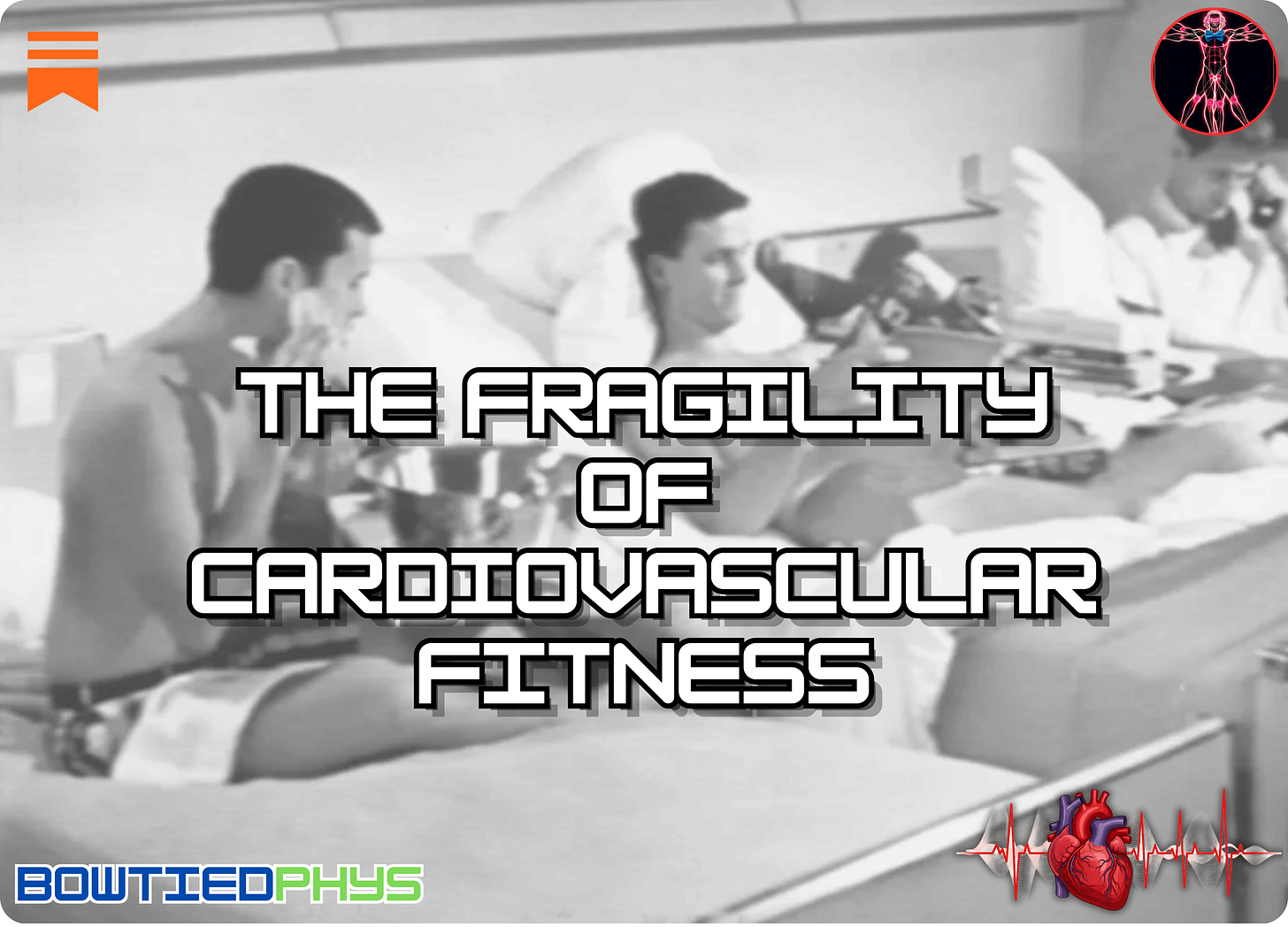
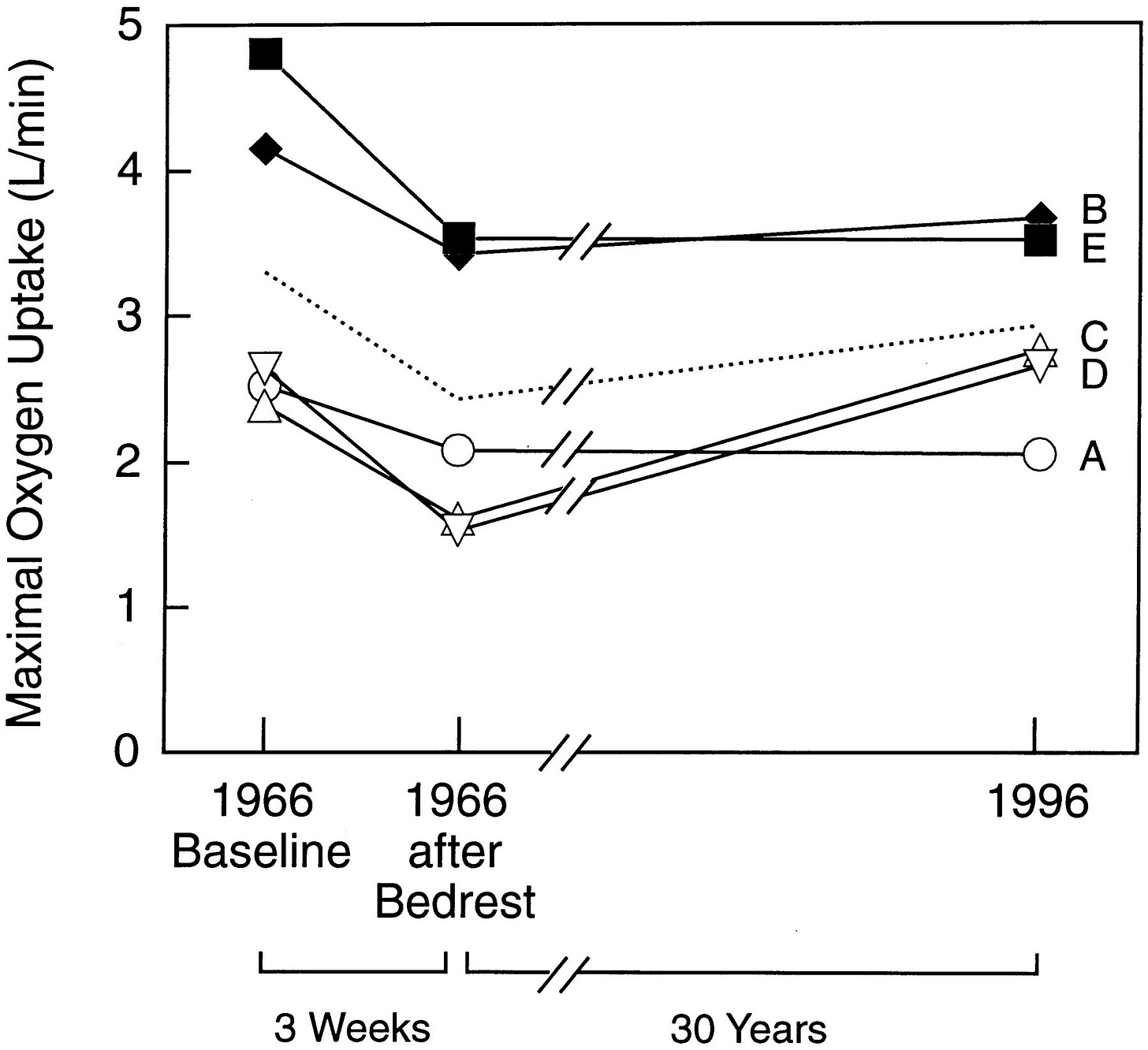
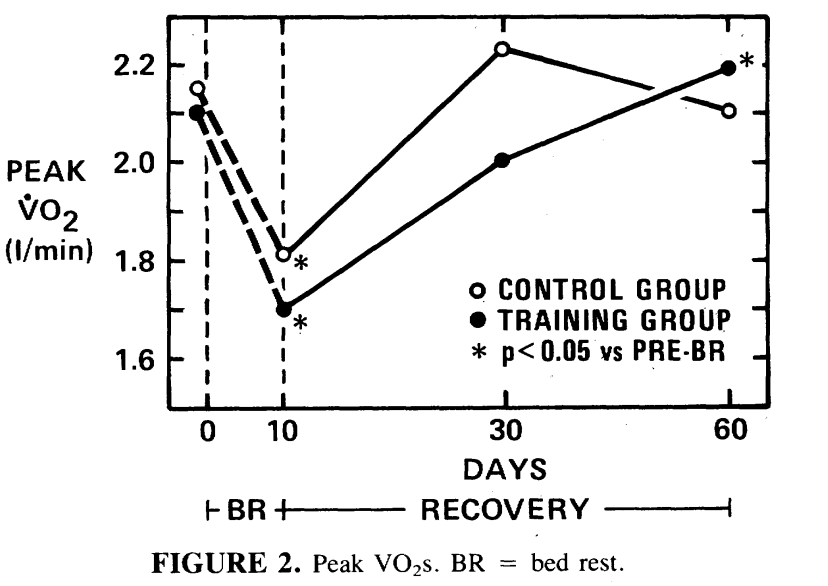
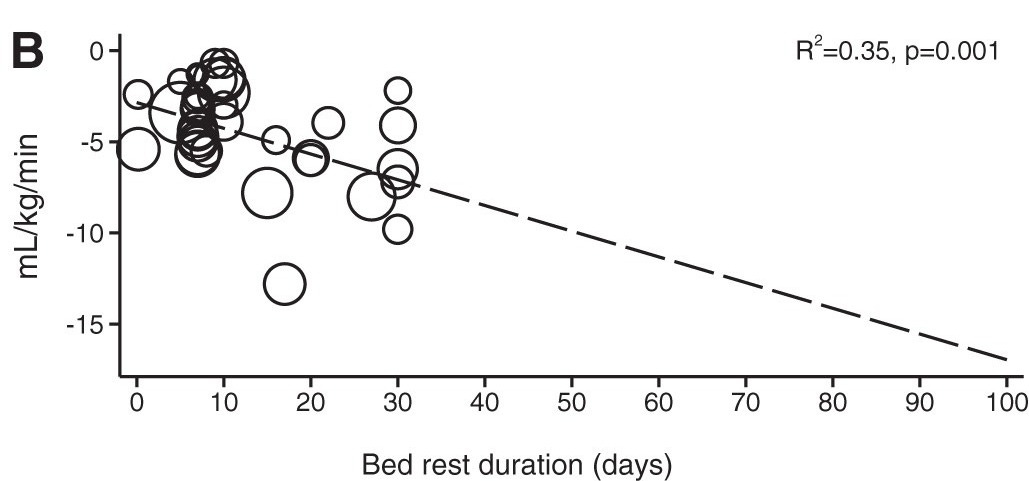

When I was 23 I focused exclusively on weights. When home for Christmas, I was excited to body my old neighborhood friends during pickup basketball. After all, I had seen some significant strength gains. At game time, I immediately gassed out and scored zero points and maybe got 2 rebounds. At half time my hip flexors seized up and I could barely walk home after. Go for a run, it won’t kill you.
Good stuff Phys.
Curious on your personal cardio routine dependent on cut, maintenance, bulk?